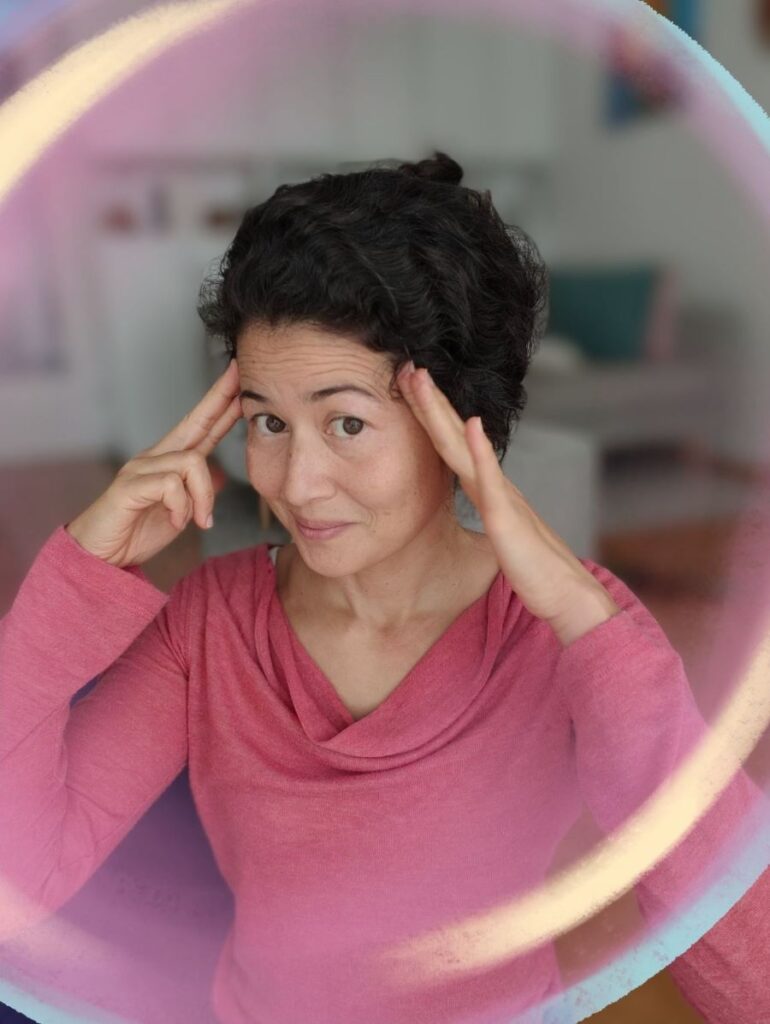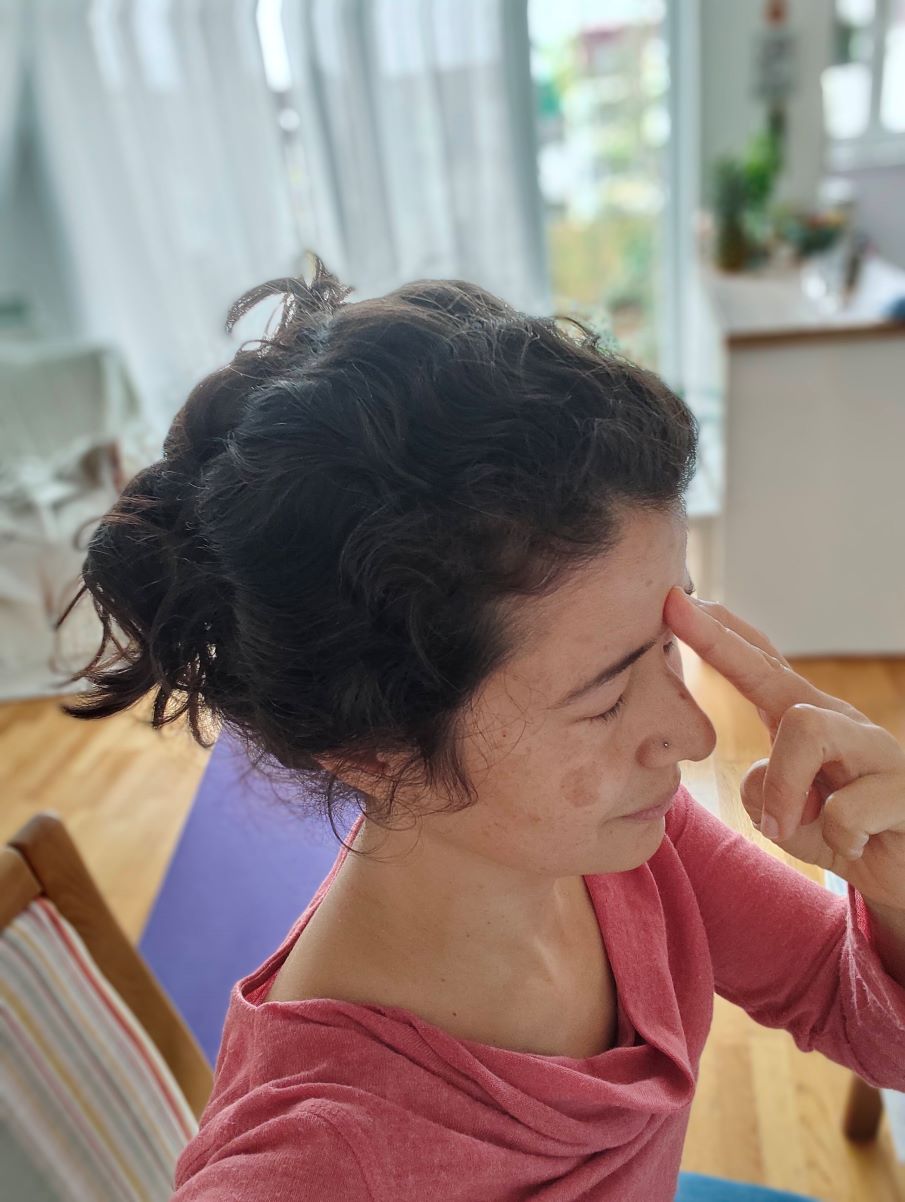Are you ready to unlock your intuitive potential? Forget what you’ve heard before about testing it out with baby steps. Let’s dive into a completely fresh, no-holds-barred approach to mastering intuition—one that challenges the logical biases we’ve been conditioned to trust over our own inner knowing.
Why This Guide Defies the Usual Intuition Advice
Intuition is often misunderstood. Many guides tell you to start small, test it out, and see if it works. But I believe that’s the wrong approach. Intuition isn’t a science experiment—it’s a deeply personal compass that guides us when we give it the space to be heard. Culturally, we’ve been conditioned to prioritize logic, analysis, and critical thinking, often at the expense of our innate knowing. This guide is about undoing that conditioning and learning to truly listen to what’s within.
My personal story
I Learned to Trust My Intuition While Giving Birth
I have long been a fan of using my intuition, intuitively, without overthinking it or seeking scientific validation. Yet when I was pregnant, the fear of giving birth pushed me to dig deeper. I found Gurmukh’s book on pregnancy and did the exercises found within, deepening my connection to myself, my body, and the baby. I gave birth to a healthy baby and am forever grateful to have had a home birth experience at the same time so powerful and beautiful that kept me forever changed. Not only did I become a mom, I found my power as a woman. Throughout labor, I focused on the third eye, and I trusted, fully trusted, my body to know what to do. It was as if, through using my intuition, I was able to tap into the wisdom of the ages, the knowledge of (wo)mankind to deliver babies naturally.
This experience was a watershed for me. From that moment on, I knew – bam! powerfully, strongly, unshakeably – that I could trust my intuition. And since then, I’ve honed it, letting it grow stronger every day. And because I have experienced how powerful and helpful it can be in navigating life, I want you to be able to embrace and trust your intuition, too.
It’s been four years since and I have been able to use and strengthen my intuition in so many ways as a young mom. It allowed me to form a much deeper connection to my child, an innate sensing and knowing, and I hold intuitive knowledge so dear I needed to share this with you. Truly, intuition is a superpower all humans, especially all moms, need. So here we go:
Trusting Your Own Inner Compass
No, you do not have to give birth to experience the transformative power of intuition. We all have the ability to tap into this inner compass—it’s a matter of learning to listen. Intuition isn’t reserved for life-changing moments; it’s there in everyday decisions, guiding us in ways we often overlook or dismiss. But what exactly is intuition? And why do we struggle to trust it in a world that prioritizes logic and analysis?
What is Intuition (And Why You’ve Probably Ignored It)
” a flash of insight, a knowing that defies explanation “
Intuition is often described as that inner voice that seems to know what’s right without the need for conscious reasoning. It’s a form of non-analytical knowledge, arising from our subconscious mind and manifesting in various forms—whether as a hunch, a body sensation, or a sudden idea while you’re doing something completely unrelated.
Scientific research backs up the existence of intuition. Studies on the brain’s unconscious decision-making show that the mind processes far more information than we (consciously) realize, allowing us to make accurate judgments without extensive logical thought. For instance, a study from the Max Planck Institute found that the brain makes decisions up to 10 seconds before we become consciously aware of them. This research suggests that intuition is not some mystical phenomenon but a real cognitive process. One, like any other cognitive process, that can be trained and honed.
Yet, for generations, we’ve been taught to silence intuitive reasoning. Our culture glorifies logic, analysis, and critical thinking, often at the expense of intuitive insight. So, how do we flip the script? How do we unlearn the over-reliance on reason and reawaken our dormant intuitive abilities?
The Forgotten Superpower: Why You Should Start Listening to Your Intuition Now
Let’s get one thing straight: intuition isn’t just a “nice-to-have” skill. It’s a superpower. One that you’ve likely been ignoring for far too long. And contrary to the popular advice of testing it in small decisions first, I’m here to challenge that. You don’t start with little things to see if your intuition works. You start by noticing it – by giving it space to be present.
The problem? We’ve been culturally conditioned not to believe in it. We’ve been taught to rely on logic, reason, and the hard, concrete facts that can be seen and measured. As in, if you can’t touch it, grasp it, it’s not there. But intuition doesn’t work like that. It doesn’t speak in facts; it speaks in nudges, impulses, and feelings that often seem to arise out of nowhere. And when you ignore those signals, you’re ignoring a deep source of wisdom. Likewise, when you nurture it, it grows.
So, What Does Intuition Look Like?
You know that random thought that crosses your mind while you’re washing dishes? Or the subtle pull toward a certain choice when you haven’t weighed all the pros and cons? That’s your intuition speaking. It’s the part of you that knows without needing an intellectual explanation.
Here’s how to begin tuning into your intuition:
Practical Step: Noticing Your Intuition in Action
Forget about meditating in a quiet room or seeking some Zen-like state in order to have a taste of your intuition. Life is noisy, and intuition doesn’t wait for silence. Here’s what you do:
- Catch the Hunch: Notice when a random thought or idea pops up in the middle of an unrelated task. You’re cooking dinner, and suddenly, you remember a friend you haven’t spoken to in weeks. Take note. Your intuition might be nudging you to reach out. Or that friend is just about to reach out to you.
- Follow the Inkling: Sometimes, it’s as subtle as a sensation. Maybe you feel an inexplicable urge to take a different route home. Rather than dismissing it as trivial, follow it. Your body often senses things before your brain does. (And when things go right, you may never find out the danger avoided.)
- Pay Attention to Impulses: Whenever you notice your body giving you a physical impulse (most often, toward something you hadn’t thought about before), follow it. Your body is nudging you in the right direction. When you feel a strong impulse to do something without knowing why—whether it’s calling someone, checking a particular book, or changing your plans—pause and listen to it. That’s your intuition guiding you.

Trusting Your Intuition in Big Decisions
Some guides lead you to think that intuition is useful for small, low-risk decisions. This is completely backward. Intuition is a reliable compass for major life choices—if you can learn to trust it.
Think back to the times when you just knew something was off, even when the data and logical analysis didn’t back it up. Maybe it was a career move, a relationship, or a decision to relocate. We’ve all had those moments when we go against our gut feeling—and regretted it later.
Busting the Myths About Intuition
Let’s dispel a few misconceptions about intuition while we’re at it:
Myth #1: Intuition is Woo-Woo
Nope. Neuroscience has shown that intuitive decisions come from rapid information processing in the brain’s subconscious. It’s your body and mind working faster than your conscious thoughts can keep up.
Myth #2: You Need to “Test” Your Intuition with Small Decisions First
Wrong. Intuition is a muscle, but it doesn’t need to be flexed in tiny ways first. Trusting it with bigger decisions will help you learn faster because you’ll notice when it’s spot-on—or when you misinterpret the signals.
Myth #3: Intuition Conflicts with Logic
Actually, intuition and logic can complement each other. Intuition gives you the initial spark or nudge, and logic helps refine the decision. But intuition often goes where logic fears to tread, leading to breakthroughs that pure reasoning can’t achieve.
Gut Feelings vs. Intuition: Know How to Distinguish Them
It’s easy to lump intuition and gut feelings into the same category—they both come from within, often appearing without explanation. It’s also important to know they are not the same. Gut feelings are super important, but they’re visceral, driven by emotions. They’re so instinctual that relying only on gut feelings may leave you way too often in fear (fight-or-flight mode).
Intuition, on the other hand, is a quieter, more sophisticated guide. It’s your subconscious mind connecting the dots from past experiences, knowledge, and subtle cues that your conscious mind might miss (or be slow to come up with). Intuition is a cognitive process. It doesn’t always hit you in the stomach; sometimes, it’s a gentle nudge, a sense of knowing, or a whisper that steers you in the right direction. Intuition can feel more abstract than gut feeling, like a mental whisper or a sudden clarity about a decision, without any physical sensation tied to it.
Why It Matters: Recognizing the difference can help you better understand your inner signals. When you feel something in your gut, it’s worth paying attention, but know that intuition—while less visceral—draws from a deeper well of wisdom. And when these two align? That’s when your inner compass truly comes alive.
Intuition vs. Logic: Finding the Balance Is Key
While intuition offers deep insights, it’s important to recognize that it doesn’t exist in a vacuum. Logic and reasoning have their place, too. Think of them as partners rather than rivals in your decision-making process. Intuition provides the initial spark—those gut feelings or subtle nudges that guide you toward a decision, while logic helps you evaluate and refine those insights.
To effectively work with both, start by acknowledging when you receive an intuitive signal. Instead of immediately diving into analysis, take a moment to sit with it. Give it space and time, allow it to be there. Wait. (Try to not comment or judge.) Then ask yourself: What is my intuition trying to tell me? What past experiences inform this nudge? Once you’ve allowed your intuition to surface, you can engage your logical mind to explore options, weigh consequences, and develop a clearer understanding.
Think of them as parts of a dance, a choreography. By creating a dialogue between your intuition and logic, you empower yourself to make more holistic decisions—ones that honor both your inner wisdom and rational thought. This collaboration can lead to deeper insights and more confident choices in your everyday life. Intellect and intuition are part of a great, powerful team.
Tapping Into the Greater Wisdom of Intuitive Knowledge
As someone who practices yoga, I’ve learned that certain things can only be truly understood once you experience them for yourself. Including some universal truths, or wisdom far greater than our own. You know what I mean? – Intuition is definitely one of those.
While science provides valuable insights into how our brains process information and make decisions, it’s ever-evolving nature means it offers an incomplete and ever-changing picture of reality. So I believe there’s an aspect of intuition that goes beyond our current scientific knowledge. It feels like tapping into a deeper wisdom—an ancient knowledge shared by humankind.
This isn’t about veering into the realm of the esoteric or mystical; rather, it’s about recognizing that our intuition can connect us to something larger than ourselves. It allows us to draw from collective experiences, knowledge and innate instincts that have been passed down through generations, perhaps through millennia.
Intuition taps into a deeper wisdom that goes beyond what logic and analysis can provide. Perhaps it’s our built-in antenna to tune into the frequencies of a great network of knowledge.
When we learn to trust and harness this intuitive knowledge, we access insights that may not be immediately explainable but are deeply resonant and valuable. Embracing our intuition leads us to navigate our lives with greater confidence and clarity. Allowing our intuition to grow will enrich our lives and guide us to fully become who we are meant to be.
How to Make Intuition Part of Your Everyday Life
Immediate Steps to Use Your Intuition
So, how do you begin integrating this into your life—right now?
- Observe without Judgment: Your first instinct might be to dismiss an intuitive hit because it doesn’t “make sense.” Train yourself to notice these moments. Don’t immediately write them off, and don’t overthink it.
- Trust Your Inner Knowing—Even When It’s Scary: The more you act on your intuition, the more you’ll see how accurate it can be. When you feel that nudge, go with it. Over time, this builds confidence.
- Tune Into Your Body: Intuition often shows up as physical sensations. Are you feeling tension? A sudden lightness? Learn to interpret the signals your body is sending, as they often accompany intuitive insights.
- Connect with Your Third Eye: Start with spending a minute a day focusing on your third eye (the space between your eyebrows). You can do this while meditating or simply sitting quietly. You can, in addition, visualize a bright light glowing in that area. And you can try pairing this practice with affirmations like, “I trust my inner wisdom” and “I am connected to universal knowledge.” This can help reinforce your intuitive abilities and deepen your connection to your inner self. To learn more about this practice as taught by Gurmukh following Yogi Bhajan, you may want to get a hold of her book The Eight Human Talents.
- Cut Out Expectations: You’ve heard this one before. But I just have to mention it. Remind yourself that you’re allowing your intuition to guide you, without the pressure of wanting a specific outcome. Let it happen and create space for genuine insights to emerge. Don’t pressure yourself and cut out expectations.

Longer-Term Practices to Cultivate Intuition
While immediate actions can help you recognize your intuition, longer-term practices will deepen your connection to this inner guidance:
1. Journaling Your Intuitive Insights: Inlcude intuitive “hits” in your journaling. Celebrate and enjoy when you notice your intuition gains voice and clarity. (And don’t beat yourself up or set unrealistic ambitions; give it time, allow for things to happen.) Journaling will help you to see patterns and understand what your intuition feels like.
2. Meditation and Mindfulness: As you know, regular meditation can help quiet the mind. And a more quiet mind makes it easier to hear your intuitive voice. Any mindfulness practices, such as paying attention to your breath or observing your thoughts without judgment, create space for intuitive insights to emerge. Again, take off the pressure, give it the space and time it needs.
3. Nature Immersion: Nature heals our connection with our selves (as we are part of nature!). Spend time in nature and you will naturally reconnect with yourself and the world around you. Nature has a way of grounding us and making space for deeper reflection, allowing intuitive insights to bubble up more freely. Don’t expect immediate insights to come when you’re out in nature, but also, don’t be surprised if they do show up.
4. Engage in Creative Activities: As with so many other tips here, they’re good for you in general, and good for you to hone your intuition. Because creativity often bypasses the analytical mind, intuitive ideas can flow more freely when you’re creative. What is your favorite creative activity? Do you like to draw, write, dance, or sing? I like to draw with my non-dominant hand to turn my mind off. Creativity is such an important part of my life, I turn simple tasks into creative activities. Whatever it is for you, any creative activity can help you tap into your intuition.
5. Seek Guidance from Trusted Sources: Sometimes, discussing your intuitive hits with trusted friends or mentors can be helpful. Make sure you feel safe and comfortable talking to that particular person about intuition. Or open up the discussion about intuition with your yoga teacher or yoga buddies. They might offer perspectives or experiences that resonate with your intuition, reinforcing your confidence in it.
Conclusion: Your New (Not-So-Average) Guide to Intuition
Mastering intuition isn’t about retreating to some quiet corner of your mind or testing the waters with baby steps. It’s about diving in, noticing those flashes of insight that happen in the middle of everyday life, and giving them room to breathe.
Integrating intuition into your everyday life is about cultivating awareness and building trust in yourself. By observing your feelings and sensations, you can begin to navigate life with a heightened sense of confidence and clarity. As you engage in both immediate practices and long-term strategies, you’ll find that your intuition becomes a powerful ally, guiding you toward a more authentic and fulfilling existence. Embrace this journey and allow your intuition to lead you toward the life you are meant to live.
We’ve all got this internal compass. Are you ready to use yours?
